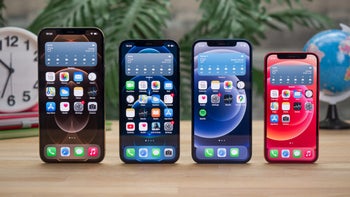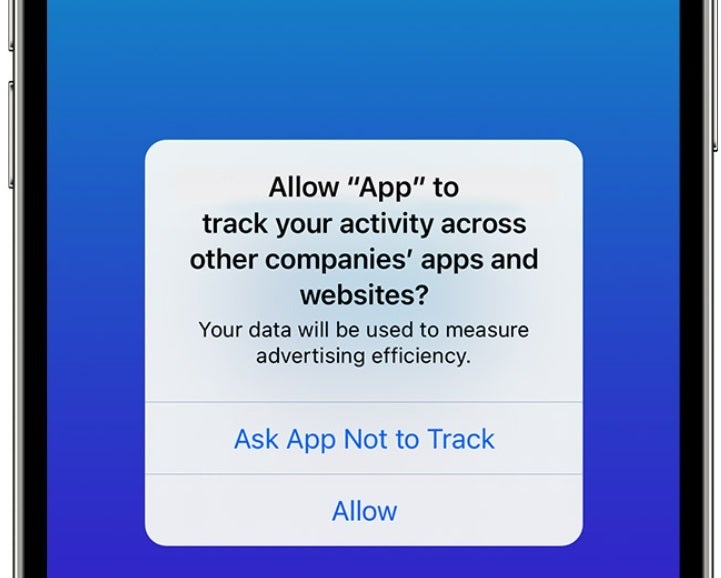Apps are still tracking iOS users despite Apple's claim about App Tracking Transparency

According to the Financial Times, Apple might have to make some changes to the App Tracking Transparency (ATT) feature that it launched in iOS 14.5. With ATT, users can choose to opt-in to continue being tracked across apps and the internet in order to receive online ads. If you choose to ask the app not to track you, the developer will not be able to use the system advertising identifier (IDFA) which is used for the tracking, nor will the developer be able to use other data to track you.
Despite Apple's App Tracking Transparency, some apps continue to track users who opted-out
The most recent data shows that only 16% of iOS users globally and 6% in the states have opted-in to continue receiving online ads. Marketing strategy consultant Eric Seufert says that many apps have been using workarounds as a way to identify those who have not agreed to opt-in. As a result, thanks to the workarounds, some apps are collecting the same amount of information as they were prior to the launch of ATT.

Apple's App Tracking Transparency feature isn't working as advertised
As Seufert says, "Anyone opting out of tracking right now is basically having the same level of data collected as they were before. Apple hasn't actually deterred the behavior that they have called out as being so reprehensible, so they are kind of complicit in it happening."
The Financial Times was able to take a look at an email sent by one app vendor who told clients that it is still able to collect data from 95% of its iOS users by using IP addresses obtained from the phones and networks they employ. This technique is known in the trade as "fingerprinting" which is actually banned by Apple. The latter says that developers "may not derive data from a device for the purpose of uniquely identifying it."
Another workaround is based on "probabilistic" methods of user identification which many believe is permitted by Apple since it is based on temporary data instead of permanent device IDs. However, Apple didn't comment when asked if its rules distinguish between fingerprinting and "probabilistic matching."
Alex Austin, CEO of mobile marketing platform Branch, says that "It's becoming clear that iOS 14 (iOS 14.5) was much more a marketing promotion than an actual privacy initiative, sadly." Yale Privacy Lab founder Sean O' Brien says that Apple is patting itself on the back over its privacy system and is heavily promoting the iPhone's privacy features although it isn't fully enforcing them.
Apple faces litigation if users who opted-out are still being tracked
Apple has been telling users that once they choose to opt-out of tracking, third parties can no longer track them. But if this is not the case for one reason or another, Apple could find itself back at its home away from home: the courtroom.
O'Brien states, "Apple may find this out the hard way, as Google has in the past, if the company is hit with lawsuits for misleading customers in regard to privacy. Just as it was discovered that Google's location history was never actually turned off in 2018, I think we will find that Apple still allows apps to peer into the windows of consumers' lives." In 2018, Google continued to track Android users even when they had turned off their Location History settings.
Some of what Google said mirrors the comments made these days by Apple. Check out Google's comments from three years ago: "Location History is a Google product that is entirely opt-in, and users have the controls to edit, delete, or turn it off at any time [...] we make sure Location History users know that when they disable the product, we continue to use location to improve the Google experience when they do things like perform a Google search or use Google for driving directions."










Things that are NOT allowed: